Lead Service Line
Information
Our goal is to ensure safe drinking water for all our residents.
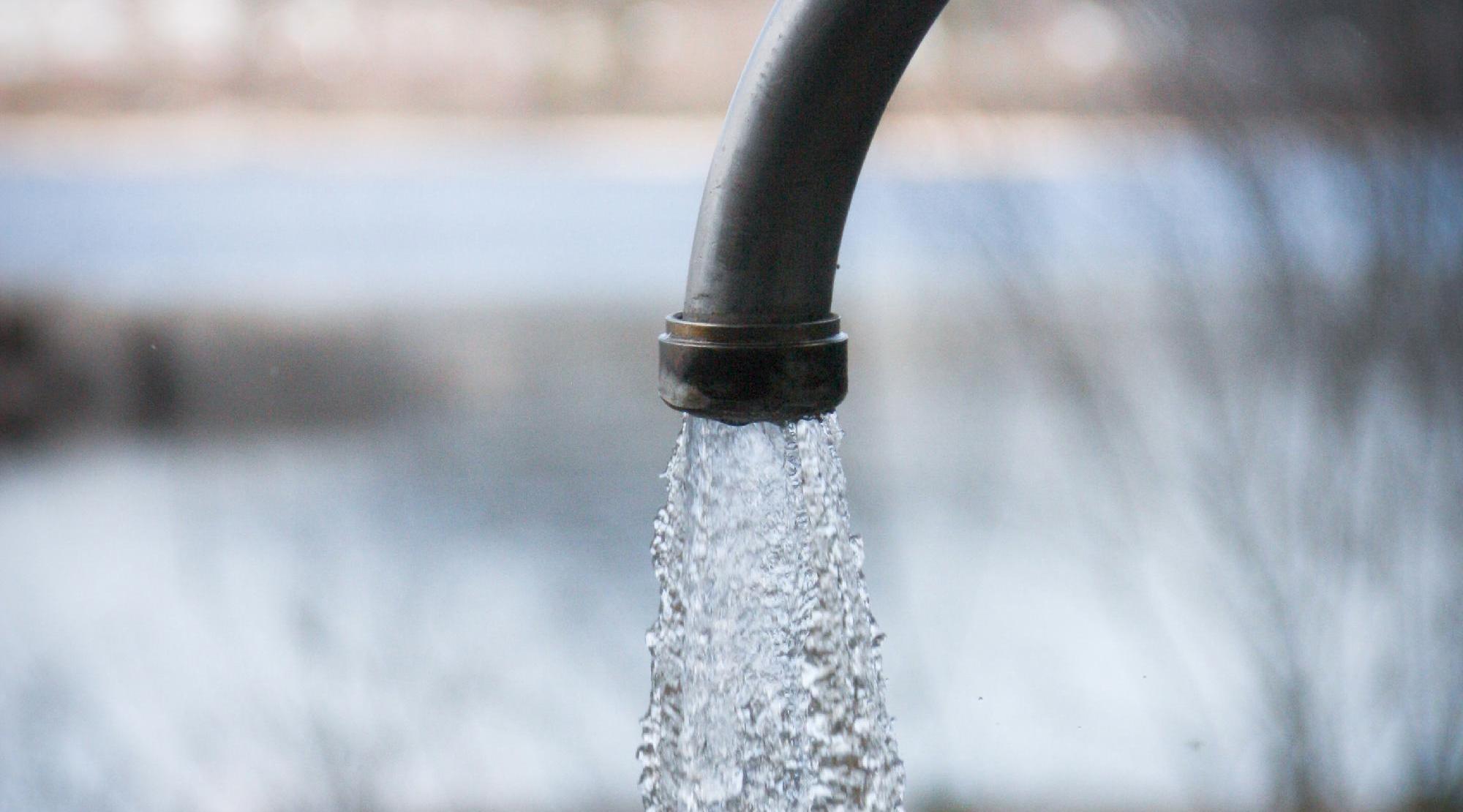
Having safe, clean, healthy drinking water is a top priority for the City, which is why DPW works to complete the testing well in advance of the deadline set by the Michigan Department of Environment, Great Lakes, and Energy (EGLE).
Please note that much of what is in the media is specific to individual water quality tests from homes with lead service lines. It is important to note the public water system and drinking water produced by water suppliers, including our own Great Lakes Water Authority (GLWA), does not contain lead.
Public Works Contact Info
3238 Bacon
Berkley, MI 48072
248.658.3490 phone
publicworks@berkleymi.gov
Office Hours
M-F 7AM - 3:30PM
Why is the City Replacing Service Lines?
The State of Michigan requires the city to remove and replace all lead service lines (pipe runs from the water main to the meter inside the house) at public cost. This work must be completed by 2041.
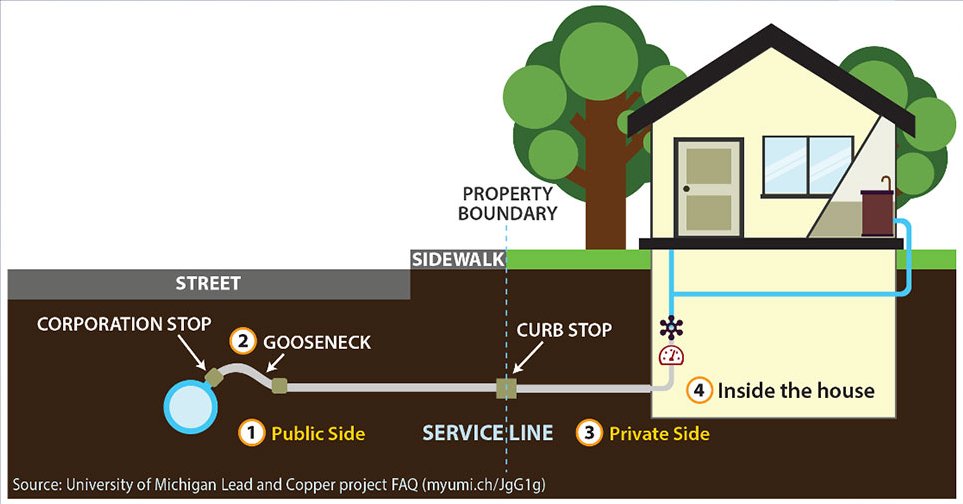
Why Does our Community Have Lead Pipes?
Many homes built prior to 1960 had water service lines installed that were lead because it was easily accessible and was well suited for making pipes at the time. Additionally, lead can also be present inside the home in fixtures and faucets.
City's Lead Service Line Testing Procedures
Every year, we conduct water testing of 30 Berkley homes that have lead service lines and submit the reports to the State for review.
Participation is entirely voluntary and homeowners who agree to perform the annual water test receive further information explaining the process.
For any resident looking to have the water tested in their home:
- The Michigan Department of Environment, Great Lakes, and Energy (EGLE) published a list of state laboratories that are certified for lead testing here. In addition, the Oakland County Health Division offers testing kits for around $20. For more information, you can contact Oakland County at 248-858-1280.
A Brief History
While lead contamination was brought to the forefront following the Flint Water Crisis, we have NOT changed the source of the City's water supply as what was done for the Flint system in 2014. Great Lakes Water Authority does apply corrosion control and this revised testing procedure is a proactive way to evaluate its effectiveness.
We also monitor our public water system through weekly tests for bacteria. In addition, lead and copper testing have taken place since 1992 in accordance with the Michigan Safe Drinking Water Act.
In 2018, the Michigan Safe Drinking Water Act was amended and it requires testing of 30 homes with lead service lines to check lead levels. This amended rule resulted in more lead testing not because the water quality for residents has changed, but because the act now has a more stringent sampling process.
How to Identify a Lead Service Line
and Participate in the Program
Your water service line is the pipe that brings the water into your home. It can be made out of copper, lead, galvanized steel, or plastic. It also only connects directly to the individual home and is NOT a reflection of the entire public water distribution system.
The City of Berkley has implemented a lead service line replacement program through which homeowners can have their lead or galvanized steel service line replaced at no cost.
To participate, homeowners will NEED TO complete the following steps:
1. Look at your service line material
Some quick notes when looking at your service line:
- Lead: Magnet will not stick & has the color of shiny silver, will typically have solder "bulb" at the plumbing connection
- Galvanized: Magnet will stick & has the color of dull gray.
- Copper: Magnet will not stick & has the color of a tarnished penny.
- Plastic: Magnet will not stick & has colors of white or gray.
Photo examples:
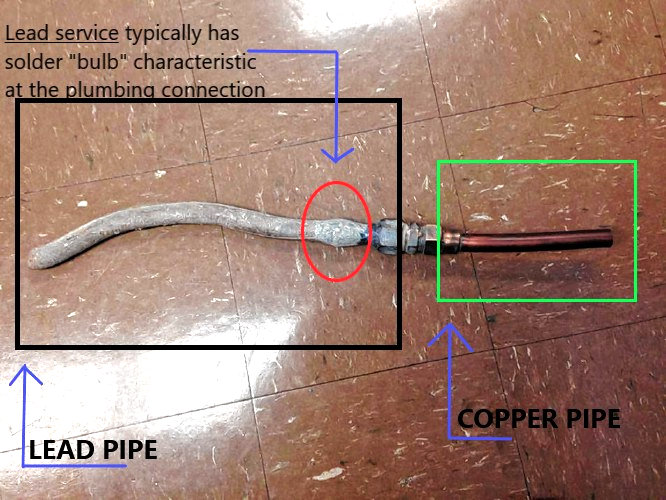
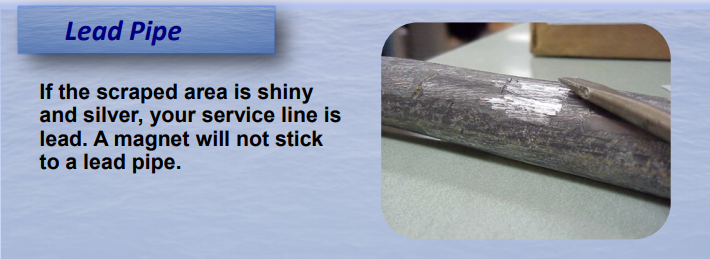
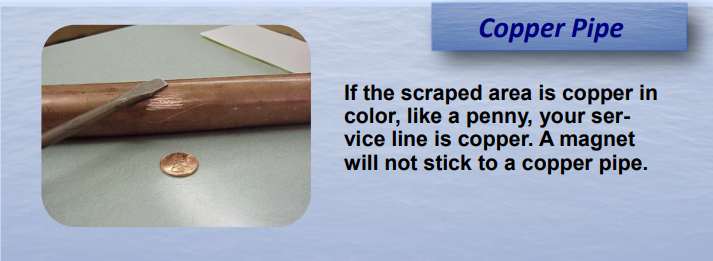
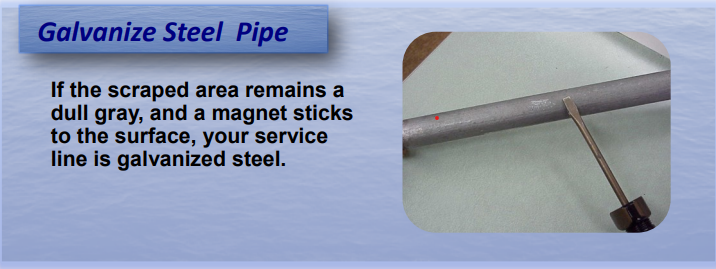
2. Submit a Picture
Click here to access the online Water Service Line Viewer portal and search your address, or send a few well-lit pictures of your water service line and meter along with your name, address, and contact information (phone and/or email) to publicworks@berkleymi.gov.
Below are some examples of what we would like to see:
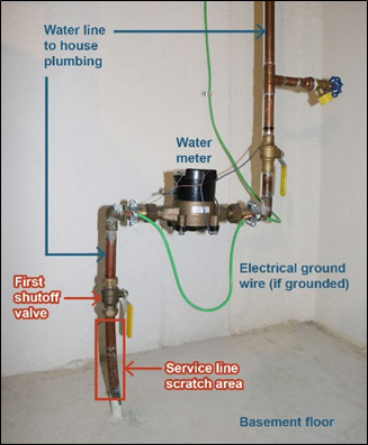 |
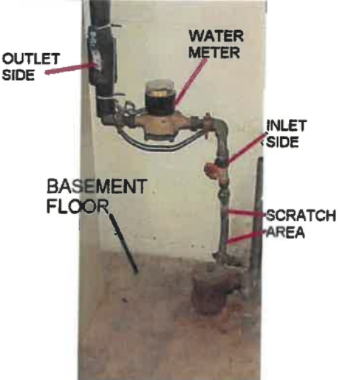 |
3. DPW to Review and Assess your Service Line
After you submit your information through the portal or send us an email, our DPW team will review and assess your photos for a lead service line.
The department will follow up by utilizing the contact information you provided. If it is a lead service line, DPW will send you an Access Agreement for you to review, approve, sign, and send back.
Once we receive your signed Access Agreement, you will be placed on the list for a lead service line replacement.
4. Replacement Timeline and Information
When it is time for your service line replacement, DPW will contact you and provide you with further instructions, as well as what to expect during the construction and replacement.
In the meantime, there are steps you can take right away to protect your household if you have lead service lines:
- Always begin with cold water for drinking and cooking.
- When you haven't used your water for several hours, flush out the pipes to remove any lead. You can do this by running cold water from the faucet, taking a shower, doing a load of laundry, or washing dishes.
- Consider capturing the extra water from the faucet and using it to water plants or even for flushing the toilet.
- Clean out your faucet aerators regularly because they can collect lead particles.
- Purchase a home filter certified to remove lead. If you do, make sure it is properly maintained.
- You can also have your water tested by a certified lab to see if lead is present.
